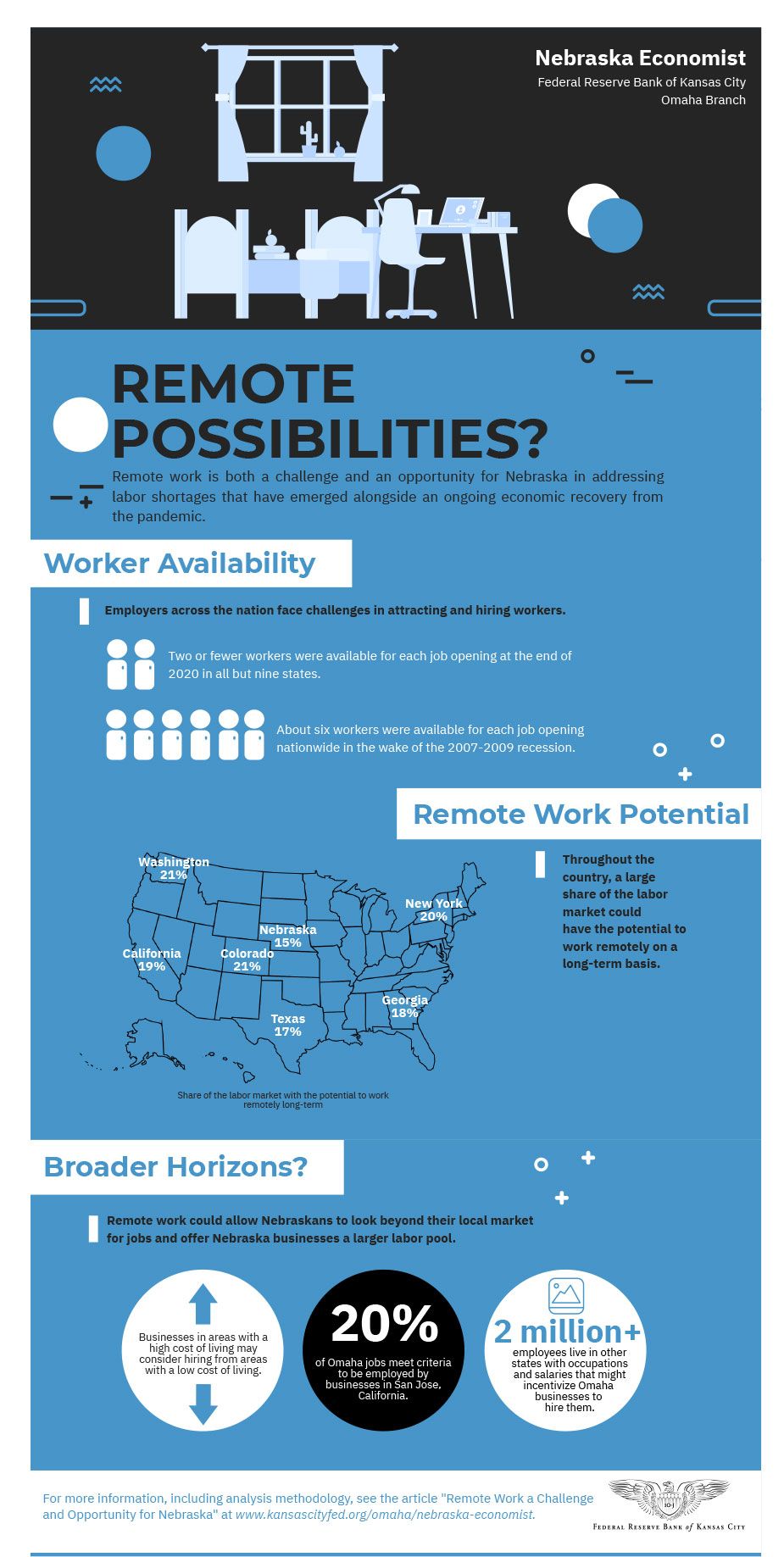The COVID-19 pandemic caused many employees to shift from in-person to hybrid or remote work settings. Experts at the Kansas City Fed have monitored the broad impacts of this transition. Below, explore our research and resources that explain the economics associated with hybrid, remote and in-person workplace settings.
The Shifting Expectations for Work from Home - February 23, 2023
Higher income workers in more densely populated areas are more likely to work from home.
Hybrid Working, Commuting Time, and the Coming Long-Term Boom in Home Construction - September 29, 2022
In the long run, hybrid working could lead single-family home construction to almost double in the largest metropolitan areas.
Is Remote Work Turning the Screw on Labor Market Tightness? - September 28, 2022
Businesses continue to face difficulties retaining workers and attracting new applicants. Those challenges are more acute in industries and locations that cannot offer as much remote work due to job constraints. The rate at which workers quit their jobs for other employment grew faster in sectors where remote work is less feasible. As retention pressures mounted over the past year and a half, job vacancies increased and wage growth accelerated more in industries that offered fewer remote work opportunities. Productivity also suffered where remote work is scant and quit rates are elevated.
External LinkHow More Time Spent at Home is Influencing Housing Prices - January 04, 2022
Homeowners in some parts of the Rocky Mountain region are spending much more time at home than before the pandemic. Communities where the mobility of their residents remains subdued have experienced faster growth in housing prices in recent months. While several factors have driven housing prices higher during the pandemic, the link to greater time being spent at home has implications for home values even as economic policies adjust, public safety concerns fluctuate, and local economies continue to reopen.
Does a Remote Work Strategy Make Sense for Rural Economic Developers? - October 08, 2021
Remote work will likely remain higher than pre-COVID. What are the potential benefits and costs of a rural remote work strategy?
Ask an Economist: The Impact of Hybrid Officing - October 7, 2021
See the whole article here.
External LinkRemote Work a Challenge and Opportunity for Nebraska - June 30, 2021
Intensifying labor shortages could lead businesses to consider the future possibilities of remote work.
External LinkWorkers Accepting of Risk Divide in Face of Pandemic - April 02, 2021
People who work remotely shoulder fewer risks during the pandemic than people who must work face to face. The External LinkAmerican Voices Project interviewed workers on both sides of this risk divide.
External LinkHybrid Officing Will Shift Where People and Businesses Decide to Locate - February 03, 2021
Many businesses are likely to shift to hybrid officing following the pandemic, with employees working remotely several days per week. The reduced frequency of commutes and associated decrease in traffic may fuel residential construction in outlying suburbs, especially in the largest metropolitan areas. At the same time, suburban employers may move their offices closer to city centers due to reduced space needs, eased parking constraints, and less frequent commutes.

External LinkRemote Work a Challenge and Opportunity for Nebraska - June 30, 2021
